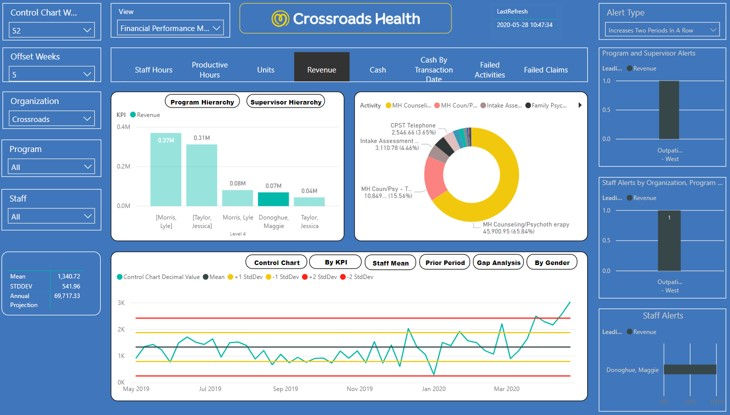Can Success with Value-Based Reimbursement Happen Without Analytics? by Monica Otts
- Doug
- Jun 30, 2020
- 3 min read
Updated: Oct 29, 2020

Article by Monica Otts (abbreviated and reprinted with permission courtesy of Open Minds.) July-August 2018 Open Minds Management Newsletter www.openminds.com
Can Success with Value-Based Reimbursement Happen Without Analytics?
You may think this is a rhetorical question, but no. I’m concerned that many provider organization executive teams are not making investments to improve their analytics and metrics-based management capabilities. As more reimbursement is contingent on performance, measurement capabilities and performance management using metrics are key. But they don’t happen overnight. The time to build these information systems - and teach management teams how to use them - is passing quickly.
Where we’re headed with reimbursement for health and human services is pretty clear - a greater focus on value and more responsibility for financial risk assumed by provider organizations.
For better or worse (depending on your perspective), it appears that value-based reimbursement of health and human service organizations is in the future for at least the next five years - and the adoption and degree of risk-sharing will increase. While I agree that the move to VBR is more like a glacier than an avalanche (in terms of speed), like a glacier, VBR fundamentally changes everything in its path. Markets that have moved to more VBR at the provider level see the need for unit cost control and efficiency (more scale and more consolidation), the need for more technology to make professional services more efficient and allow more consumer self-service, and the need for more standardization of the allocation of service resources. And, most importantly, the need for analytics to aid executives in making real time decisions about efficiency, consumer experience, clinical outcomes, service utilization, and costs.
To me, what seems to be the big gap is creating executive teams that embrace not only the need for data, but the need to actually run the organization and make decisions based on those metrics. Without that perspective, organizations that start to accept VBR contracts without the data, the trade craft to interpret the data, and the management team to act on the data are likely to be unsuccessful. They will lose their market advantage to their metrics-focused competitors.
The Open Minds team has spent thousands of hours developing tools and models to assist provider organizations in the transition to a value-based health and human service environment. But even with the best tools, you can have a great plan for success in the new reimbursement environment that will not become a reality without the right management perspective.
For additional hands-on perspectives, some executive thought leaders offered the following:
First, all of them see electronic health records (EHR) as the essential “building block” of tech infrastructure they need to be successful. The EHR data is then being used in two ways: sharing data through health information exchanges (HIE); and combined in a data warehouse to allow for better data to make decisions.
Second, health information exchange with other organizations is essential. This expanded data set is critical to more advanced clinical decision support and proactive monitoring of consumers.
Third, building a tech-enabled workforce and a culture of data - getting staff on board with new systems, ensuring they are properly trained, and shifting workflows to build better processes with new technology is a major concern.
Finally, data security and lack of resources can also be barriers to building the technology infrastructure for VBR. While each had the perspective that they need to invest more in technology, they were limited by their resources.
Monica concludes with the following ……Back to my initial question: “Can Value-Based Reimbursement Success Happen Without Analytics?” My answer is “not for long.” Initially, there may be enough slack in the gain-sharing arrangements to allow for success without great data. But, as gain-sharing turns to risk-sharing, and as competitors have better information management systems, the management teams empowered with the most information, the most useful information, and the most rapid information, will have the edge.
For more information, contact Doug Philipon at doug@icentrix.com or call
603-893-3922 x703



Comments